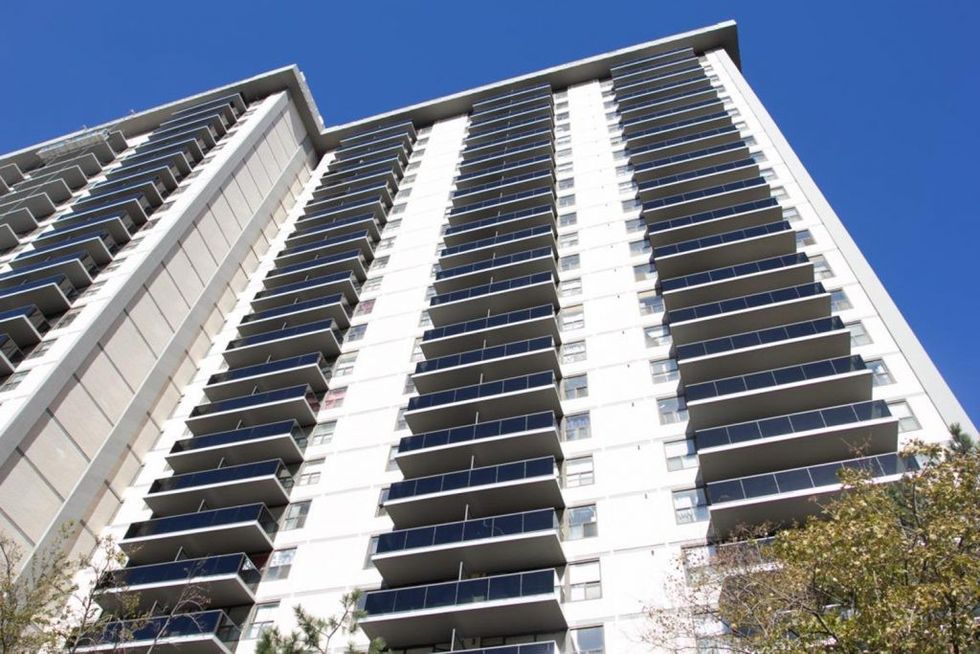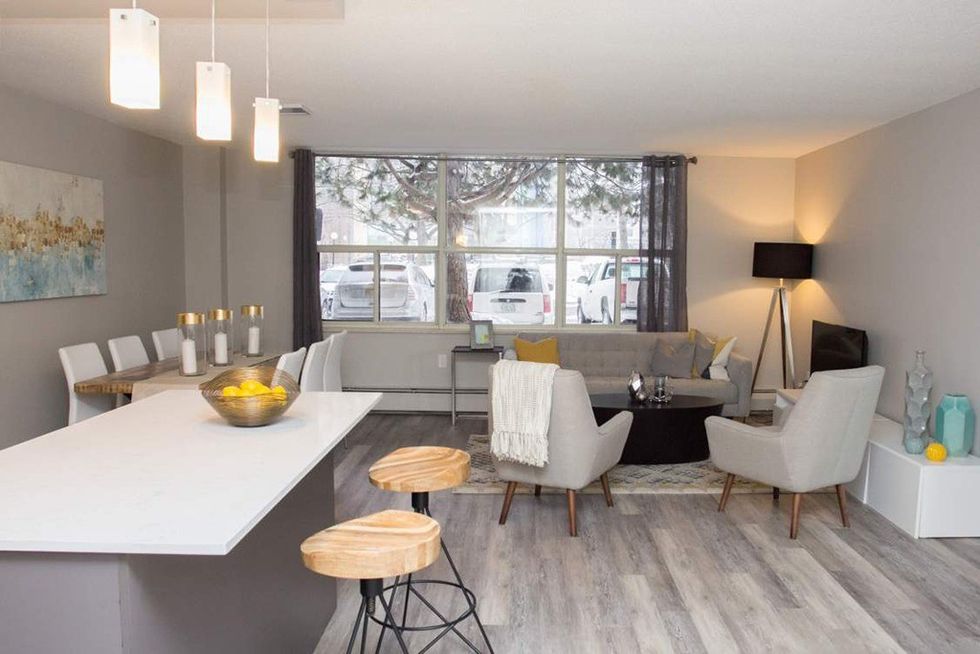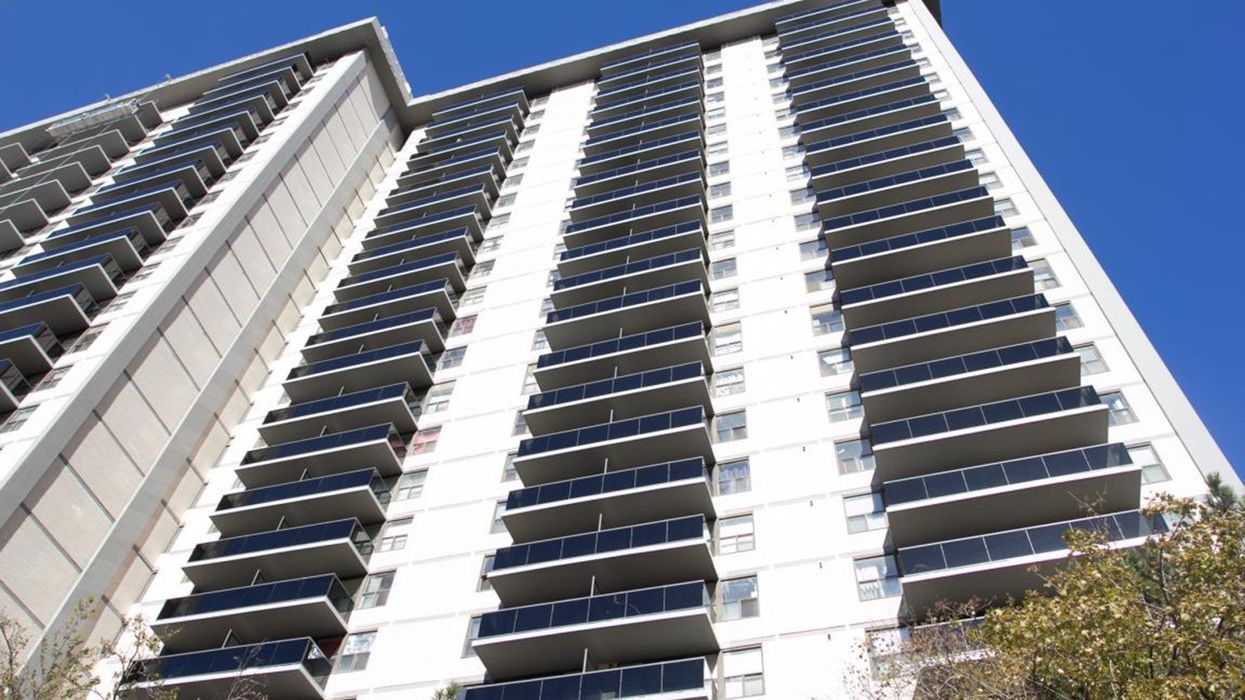
The CBC's recent No Fixed Address series has drawn some much needed — albeit controversial — attention to Toronto's red-hot rental market.
If you haven’t kept up with the string of stories, here it is in a nutshell: journalist Shannon Martin, self-described as “small but cute” — just like her former apartment — lived in a 454-square-foot condo rental for $1,650 a month, plus hydro. Underlining the similar living circumstances of her friends, she reports, “Whether we work in media, pharmacy or public relations, most of us are forking well over 50 per cent of our paycheque to put a roof over our heads.”
Hustle. That was Martin’s way of making it work. That is, until she received an email from her property manager that rent was about to increase to $2,600. Read: a 454-square-foot condo for $2,600 a month. She called up the Ontario Landlord and Tenant Board and got a two-word answer: you’re screwed.
A reality? Maybe. Screwed? Not exactly.
While Martin points to being “screwed” on the condo-rental front, she leaves out a big piece of the whole picture. That is, purpose-built rental buildings — aka buildings constructed for the sole purpose of renting.
So where does that leave renters like Martin, CBC’s notorious couch-surfing journalist, who want to live for approximately $1,000 a month? No Fixed Address plugs options like a basement flat in The Beaches ($999) and a private, 19-foot-long motorhome parked at Bloor and Spadina ($475). Oh, and you can also ditch Toronto in favour of Vaughan, Pickering and Mississauga.
Here’s the thing: not only can you rent in the $1,000 range in Toronto, you can rent luxury in Toronto — apartments so spacious and new that they’d make Joni Mitchell and her Annex motorhome weep.
Let us set this up for you. The Canada Mortgage and Housing Corporation (CMHC) prescribes that you should not be spending more than 35 per cent of your gross family income on housing. That means that if you’re making $40,000 a year, you’re in good shape if you’re spending about $1,170 a month on rent or mortgage payments.

Cary Green, chairman of veteran property management firm Greenwin Inc. and executive vice president of sister-company Verdiroc Development Corporation, says, “The CBC has started a really important discussion. Our industry is now joining the conversation, saying that you can rent in Toronto and still live comfortably within CMHC’s guidelines.”
Take 88 Erskine Ave., for example. Owned and operated by Greenwin Inc., the building has undergone substantive renovations ranging from brand new balconies to a top-floor spa that overlooks the entire city. Located in the heart of Toronto’s midtown core and topping Toronto Life’s Ultimate Neighbourhood Rankings list, 88 Erskine’s studios start at $1,399 with a square footage that’s comparable to Martin’s $2,600 condo rental.

Understandably, paying $1,399 is a tough nut to swallow for one person. Green, however, suggests you can skip the studio, partner with a roommate or significant other, and score upwards of 1,000 square feet for just under $2,000 per month. That’s about $1,000 per person for a sprawling suite, concierge, fully renovated gym, rooftop patio, pool and hot tub (which is moments from public transit and ideally placed in one of Toronto’s most desirable neighbourhoods).
Similarly, other reputable Toronto landlords, like Greenrock Property Management, offer deluxe, renovated two-bedroom suites for $1,875. What does that get you? Close to 1,000 square feet of living space in the company’s downtown Village Green Community. Positioned between not one, but two, subway stations — Wellesley and College — these properties will have you reconsidering that hop onto Martin’s Toronto exodus bandwagon.
While the CBC braces Toronto for its potential to become a “generational ghost town” thanks to soaring condo rents, Green cautions, “We have to look at the whole picture. We want young people to recognize that there are so many alternatives to condo rentals. Some of Toronto’s best landlords have purpose-built rental properties in the city’s best neighbourhoods — Yonge and Eglinton, Yonge and Davisville, Yonge and College, Bloor and Sherbourne. And they’re very affordable alternatives. Most of these buildings haven’t just been renovated — they’re brand new.”
So the next time your condo manager jacks the rent, consider relocating to a property that was built specifically for renters, and to a unit that could far surpass a “cozy” basement unit or a home on wheels.
For more information or to join Greenwin’s discussion, search #whatyoucanREALLYget on Twitter.




















